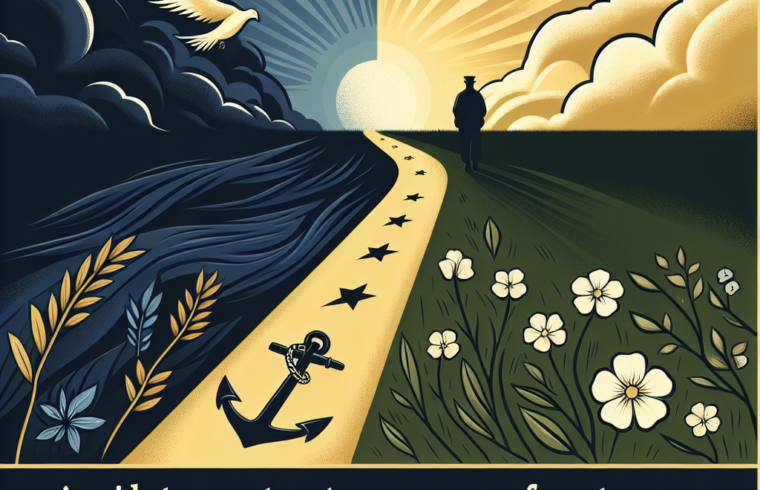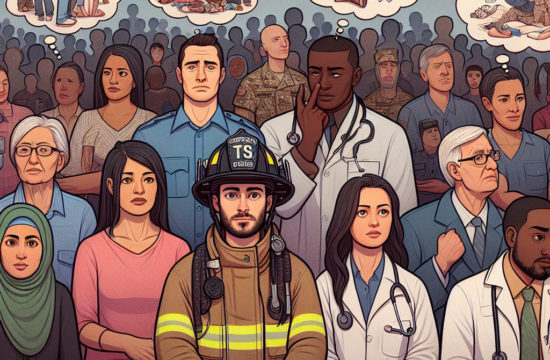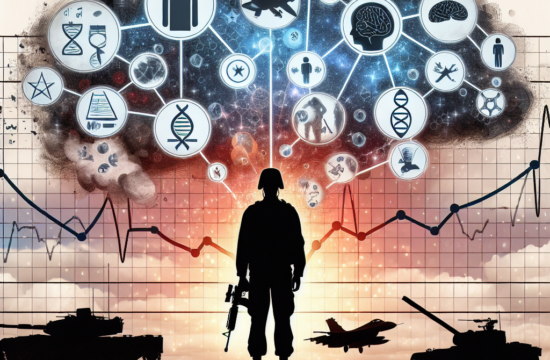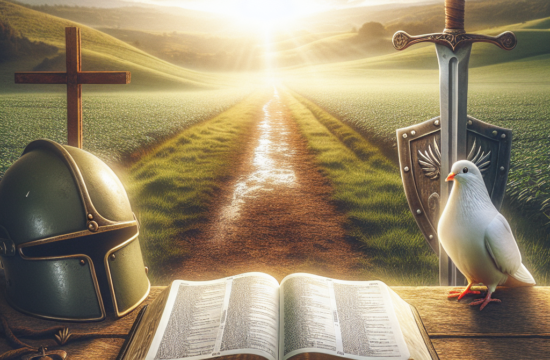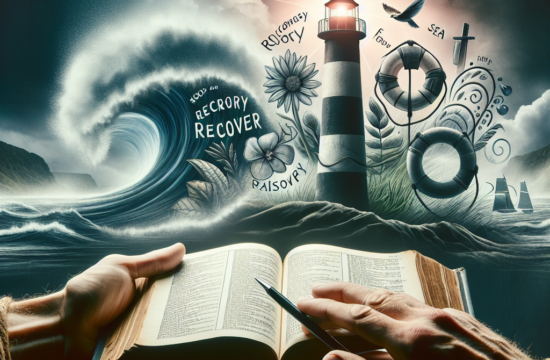==> Thank you for reading this post! Click Here If you are looking for support and Victory over PTSD.
Healing from Trauma: A Veteran’s Guide to Recovery
Top 4 Semantic Keyword Phrases
- Post-Traumatic Stress Disorder (PTSD)
- Trauma Recovery Techniques
- Support Systems for Veterans
- Mindfulness and Healing
Post-Traumatic Stress Disorder (PTSD)
Understanding PTSD
When I first encountered PTSD, I had no clue what was happening to me. It was like a shadow lurking just behind my back, waiting to pounce when I least expected it. Recognizing its symptoms was the first step toward recovery. Flashbacks, nightmares, and a constant sense of unease became my unwelcome companions.
PTSD can affect anyone who has experienced or witnessed traumatic events, and for veterans, the experience can hit particularly close to home. It’s crucial to educate ourselves about these feelings. You’re not alone, and it’s totally okay to seek help.
Understanding the root of PTSD is integral to the recovery journey. Discussing your experiences with those who get it can make a world of difference, and trust me, talking helps lighten the emotional load.
Recognizing Triggers
Triggers, those pesky little reminders of traumatic events, can come out of nowhere. A loud bang, a sudden movement, or even specific smells can send you spiraling back to a difficult time. Learning to identify what triggers your PTSD is like having a map for navigating your emotions.
Once I recognized my triggers, I found it easier to prepare for them. If I was headed to a crowded event, I’d mentally prep myself and sometimes bring a buddy along. There’s tremendous strength in anticipation.
Moreover, writing down these triggers can feel cathartic. Keeping a journal helps you track patterns, and it’s also a great way to vent! Don’t underestimate the power of pen and paper in your healing journey. It can be your steadfast companion when you feel alone.
Finding Professional Help
Seeking help from a mental health professional was a game-changer for me. For a long time, I thought I could handle things on my own, but I eventually realized that reaching out wasn’t a sign of weakness; it was a leap toward strength and healing.
Finding the right therapist can be challenging. I recommend looking for someone experienced with veterans and trauma. A therapist familiar with military culture gets it on a deeper level. Trust me, it makes a difference.
In those sessions, I personally felt a mix of vulnerability and safety. Sharing my stories and receiving coping strategies was like having a toolbox to face the world outside those walls. There are resources out there; don’t shy away from them!
Trauma Recovery Techniques
Coping Strategies
Once I started my recovery, I discovered various coping strategies that became my lifelines. Grounding techniques, such as deep breathing and progressive muscle relaxation, can ground you in the present. When the anxiety hits, these techniques can pull you back from the edge.
Visualization exercises were also a personal favorite. Imagining a peaceful place or a happy memory quickly shifts the focus away from distressing thoughts, reducing panic. Closing my eyes, I’d visualize standing on a beach or sitting by a campfire, letting those feelings wash over me.
Remember, the key is to find what works for you. Experiment with different techniques until you stumble upon that magic mix that truly helps you unwind and refocus.
Building Resilience
Resilience might seem like a tough nut to crack, but it can be developed! It’s like building muscle; the more you practice resilience, the stronger it gets. I started by setting manageable goals each day. Little victories accumulated into larger ones over time.
Having a growth mindset also plays a significant role. Embracing the idea that setbacks are part of the journey helps reduce the feeling of failure. Every day won’t always go smoothly, and that’s completely okay. It’s about showing up for yourself, no matter what.
It’s empowering to learn and adapt. Each experience contributes to who we are as humans. Share your growth stories with others; it’s amazing how inspiring it can be!
Engaging in Activities
Getting involved in life can be a powerful antidote to trauma’s grips. For me, participating in activities I enjoyed not only distracted my mind but also reignited passions that had been dimmed. Gardening, hiking, or even volunteer work became my therapy.
These activities help reconnect you with the world around you. Joining groups or clubs can provide the social interaction that may be lacking, establishing a sense of community—something every veteran needs.
Invest your energy in things that ignite joy! It’s a form of self-care that can transform your outlook and foster deeper connections with others who share your interests.
Support Systems for Veterans
Finding Peer Support
Your peers are often your best allies. Connecting with fellow veterans, whether through local meetups or online forums, was incredibly validating for me. It’s a chance to share experiences and stories that you might not feel comfortable sharing with those outside the military.
This peer support can foster lasting friendships and offer a sense of belonging. It’s vital to have spaces where you talk without judgment and find people who truly understand your journey.
Get Started with Recovery! Visit us for more Information and Support
Don’t hesitate to reach out! Whether it’s a coffee date or a group activity, these connections can make a world of difference in your healing journey.
Family and Friends
Family and friends can be your greatest support network. Opening up to them about your struggles may feel intimidating, but it’s essential. They want to help; they just might not know how.
Communication is key. Be honest about what you need from them – whether it’s a listening ear or someone to hang out with when you’re feeling down. It can be a huge relief to let your loved ones into your world.
Cultivating this supportive environment ultimately strengthens bonds. They become your “team,” pushing you forward through tough times and celebrating your progress.
Community Resources
There are various community resources available. From local veterans’ organizations to mental health services, I found that many people are dedicated to helping veterans regain control over their lives. Reaching out to organizations like the VA can be a great start.
Many communities also offer wellness programs focused on the unique challenges veterans face, enhancing your recovery through workshops and activities. Take the time to explore what’s available nearby.
Being proactive about finding these resources can create unexpected opportunities for healing. Remember, it’s about building the support network that works for you!
Mindfulness and Healing
The Importance of Mindfulness
Mindfulness became my sanctuary amidst the chaos following trauma. This practice encourages living in the moment, allowing me to focus on the here and now rather than spiraling into past experiences.
By incorporating mindfulness into my daily routine—be it through meditation, yoga, or simply paying attention to my breath—I learned to cultivate a sense of peace. Even just a few minutes a day can yield monumental changes.
There are various resources available, including apps and local classes, to help you get started. Don’t be afraid to try them out; it can feel a bit strange at first, but stick with it, and you’ll see the benefits unfold.
Developing Self-Compassion
After my own trials, I realized the importance of self-compassion. We veterans often hold ourselves to unrealistic standards; it’s critical to show ourselves grace. When I made mistakes or faced setbacks, I practiced being gentle with myself.
Self-forgiveness is truly liberating. It’s okay not to have it all figured out. Acknowledge your feelings without judgment and treat yourself like you would a friend in the same situation.
To build this compassion, I often encourage myself with affirmations or even write letters to my past self. It’s a way of reassuring myself that I’m doing my best, and that’s enough.
Integrating Mindfulness into Daily Life
Mindfulness doesn’t just have to occur on a meditation cushion; integrate it into daily activities! Whether you’re eating, walking, or even showering, focus on your senses. What do you see, hear, and feel at that moment?
By practicing mindfulness in daily activities, it helps me stay calm and collected even during stressful situations. Over time, it becomes second nature, creating a deeper sense of stability in your life.
Remember, it’s a journey. Be patient with yourself as you learn; you’re creating a beautiful path toward healing.
FAQ
What is PTSD and how does it affect veterans?
PTSD, or Post-Traumatic Stress Disorder, occurs after experiencing or witnessing traumatic events. It can manifest as flashbacks, nightmares, or heightened anxiety, and many veterans experience these symptoms uniquely due to their service-related experiences.
What are effective techniques for trauma recovery?
Effective recovery techniques include coping strategies like grounding exercises, building resilience through goal-setting, and engaging in activities that bring you joy or fulfillment. It’s all about discovering what resonates with you personally.
How can veterans find support systems?
Veterans can find support through peer groups, family and friends, and community resources like local veterans’ organizations or therapy programs. Engaging with others who understand similar experiences is invaluable in the healing process.
How does mindfulness contribute to healing from trauma?
Mindfulness helps create awareness of the present moment, allowing veterans to observe their feelings without judgment. It can reduce anxiety and promote emotional stability, playing a significant role in trauma recovery.

